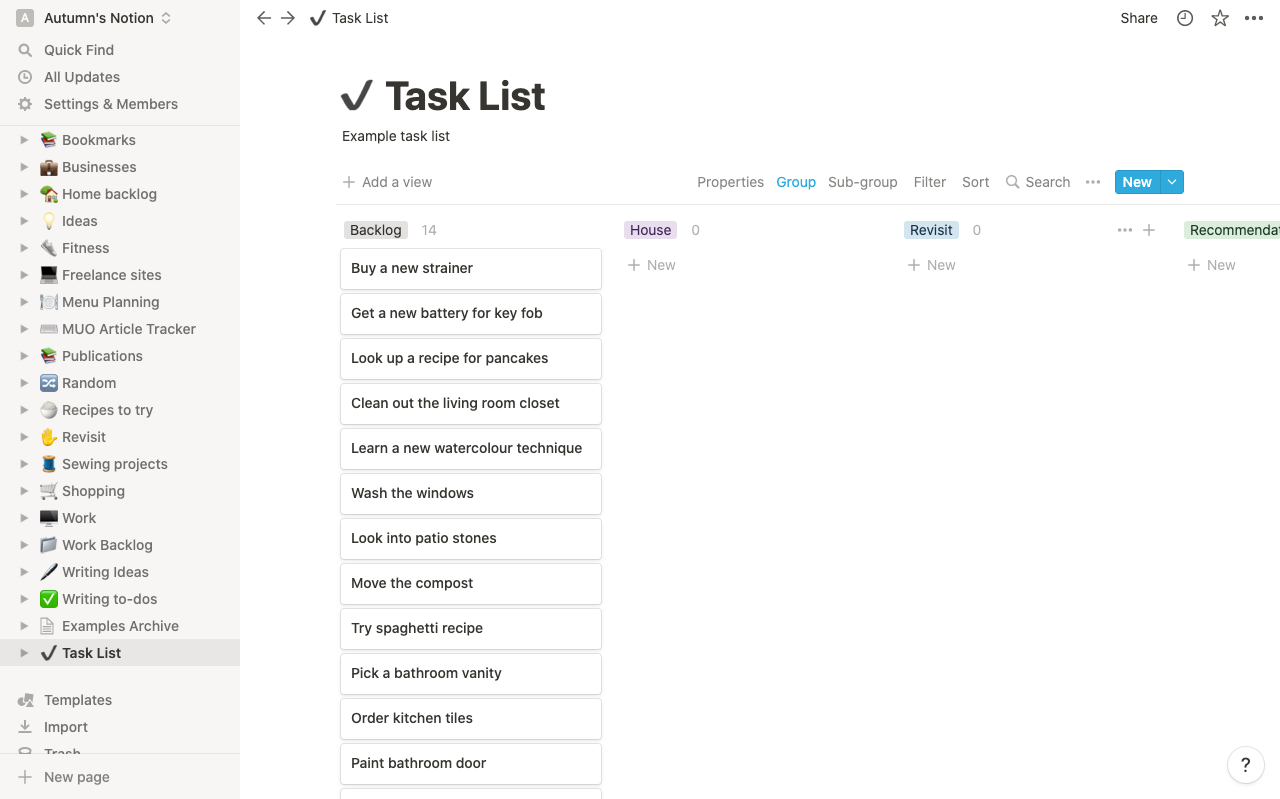Goal setting is key to staying productive, but daily task lists often overwhelm me, especially when life throws curveballs. Shifting to monthly goals brought flexibility, clarity, and reduced stress. Here’s why focusing on monthly goals has been a game-changer for me.
1
Flexibility and Adaptability
One of the biggest reasons daily lists never worked for me is their lack of flexibility. Life is unpredictable, especially with kids thrown into the mix, so sticking to the rigidity of a daily to-do list just left me feeling frustrated when even the smallest of plans needed to be changed.
I “had” to get X, Y, or Z done, and if I suddenly needed to do V as well, where would I find the time?
Swapping to monthly goals instead left me room to adjust on the fly without feeling like I had failed. For example, if one of the kids got sick and I needed to spend the whole day taking care of them or a last-minute meeting interrupted my schedule, I could simply shift my focus to other tasks or pick up where I left off later in the month.
For this project, I decided to use the Notion free app, which essentially lets me post which projects or tasks I want to get done, and I set the date range for the whole month. Things I was actively working on could be highlighted, and once I finished something I just had to click that it was completed.
This adaptability meant I was not constantly scrambling to “catch up.” Instead, I could prioritize effectively and maintain momentum, knowing I still have time to achieve my goals.
2
Focus and Clarity
Another area in which monthly goals saw a huge improvement was my ability to focus. It might seem like having a daily list would make that easier, breaking it down into bite-sized chunks, but for me, I had less of a sense of clear direction and instead a cluster of long, ever-changing lists. Monthly goals encouraged me to think big and focus on what truly mattered.
For instance, instead of worrying about crossing off ten small tasks each day, I concentrated on broader objectives like “write five blog posts this month” or “complete one home improvement project.” This longer timeframe helped me stay focused on bigger goals, making it easier to ignore distractions and prioritize my time effectively.
3
Reduced Pressure and Burnout
Daily tasks just felt like an unending treadmill, at least for me. I was lucky if I got through a day with everything completed, and leaving items undone became a source of guilt. Pile that pressure daily, and I quickly found myself feeling burned out. Monthly goals eliminate this pressure by providing a broader perspective—you don’t have to nitpick your every move, but rather, look at the big picture.
When I focused on what I wanted to accomplish over a month, I didn’t feel like I was racing against the clock daily. Monthly goals let me take breaks when needed without feeling like I was falling behind.
4
Encouragement of Long-Term Planning
Monthly goals naturally encourage more strategic thinking. Instead of reacting to immediate demands, I was able to plan for the future and align my actions with larger personal and professional goals.
For example, if I want to improve my writing skills, a monthly goal like “finish a writing course and submit three articles” helps me break down that objective into manageable steps. I could do the three articles whenever I had time, and spread the writing course across the month, fitting it in where it made sense.
This approach makes sure that I am always moving towards meaningful growth, rather than just checking off tasks.
5
Meaningful Assessment and Reflection
At the end of each month, I take the time to review my progress, and this practice has been simply transformative for me. Unlike daily task lists, which, as I mentioned earlier, can feel like a blur of activity, monthly goals give me a clearer picture of what I have achieved and where I can improve. I was actually procrastinating less and working on my goals more.
If I set a goal and don’t quite meet it, I can assess what held me back and adjust my plan for next month. That reflection process boosts my self-awareness and helps me refine my overall strategy for greater success.
So, if daily task lists are leaving you feeling overwhelmed, why not give monthly goals a try instead? You might find that switching from the daily grind to monthly goals will help with how you approach productivity and create a more flexible system that reduces your stress and promotes long-term planning. As long as you find what works for you, that is all that matters in the end.

